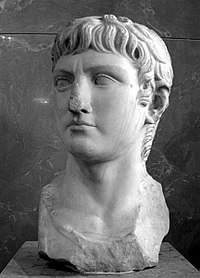I dislike the broad use of the term "broken." I know that it carries the sense of "overpoweredness" or "unbalancing" in modern gaming parlance, but early on, Pathfinder has seemed in my opinion to accept the idea of "power gaming" as an accepted feature within itself, and has actually become rather transparent due to the corresponding boosts given to monsters, NPCs, and so forth. Compared to "D&D classic" (3.0E), Pathfinder characters have many, many more tricks to choose from--feat as well as class-based.
For purposes of this thread I'll restrict my use of "broken" to mean "unplayable as written or requiring some rewriting to make it mesh with the rest of the game system".
So what is 'broken'?
Firstly, I'll nominate the ubiquitous knowledge skill checks to know things about monsters. When used as intended, they break the game. And this is related to one of my main pet peeves about experienced players. (Apologies in advance for the segue.)
We all know what character level is. But then there is also a tangible quantity known as player level. Player level measures how good the *player* is at adventuring. This is most easily observed by a mediocre or poor roleplayer who lets his real-world gaming experience dictate the actions of his character, regardless of actual character level, Intelligence, Wisdom, or any other stat.
Here's a few examples.
1st-level players, 20th-level party: everyone forgets to set watches after making camp for the night, and all are eaten by worgs.
20th-level players, 1st-level commoners: despite having little or no adventuring experience whatsoever, all players automatically fall into the routine of figuring out who is going to stay up when, so the big bad GM can't launch a surprise attack on them.
1st-level players, 20th-level party: when building their characters, they forget to buy any of the following: backpacks, clothing, bedrolls, flint & steel, water skins, backup weapons, etc.
20th-level players, 1st-level party: no matter what background events caused these greenhorns to venture out into the wilderness, you can be sure they will not forget any essential adventuring items.
1st-level player, 20th-level wizard: Wizard decides to split off from the main party to explore a side corridor in a dungeon, gets separated and is killed by a save-or-die trap.
20th-level player, 1st-level wizard: Wizard knows never, never, ever go off by yourself in a strange dungeon without someone leading the way who knows how to find traps.
1st-level player, 20th-level barbarian: gains an audience with the monarch of a foreign kingdom, behaves arrogantly and insults the entire royal family, gets arrested and imprisoned for a few months while the GM tries to sort out some other way for the party to be entrusted with any kind of government-approved mission.
20th-level player, 1st-level barbarian: gains an audience with the monarch, and despite his primitive background, is able to fit right in with the rest of the court and shmooze with the best of them.
(end segue)
Here is what bugs me about knowledge checks:
(a) there is no reason for players not to ask for one, which means that you may have parties with at least one player whose first action or thought at the beginning of every single encounter has to do with making a knowledge check to see what they "already know" about the monster, and then:
(b) success spoils at least part of the surprise of a monster that has never made an appearance "onstage" in the current campaign. Never mind that a character had probably never known such a monster could exist outside of some unnamed second-hand source; a high skill bonus and a decent roll will demand that the information must have been acquired offstage at some point (possibly pre-generation) or that the character somehow made some amazing leaps of logic to arrive at a correct comprehension of this unfamiliar monster's abilities.
While it makes some sense for Knowledge checks to be tied to a monster's CR (where CR is a rough measure of rarity, deadlier monsters being balanced by their relative rarity within their imaginary ecosystem) but CR alone is not an accurate measure of how rare information about them should be. The system breaks down, for instance, with CR 1 beings of an endangered species limited to some obscure region of the world--no one from may have ever heard of them before but any ol' knowledge check will grant information that should not have been knowable. Conversely, DRAGONS are the most famous monsters any D&D-derivative, and some of the most powerful. How, then, could a low-level adventurer having heard bardic legends all his life about these mighty creatures be nearly clueless about what a great wyrm red dragon is capable of?
* * * * * * * * * * * * * * * * * * * *
A second feature of the game I would nominate as "broken" would be the "last-resort undoing of something really bad/automatic ability boost/choose your own super-awesome effect" aspects of Wish and Miracle ought to be moved up to their own, unique, 10th spell level, or else rewritten to behave like a 4E-style ritual that takes more than mere standard action to cast. The lower-level mimicry aspects do not exceed what a 9th-level spell should be able to accomplish, but Wish seems like it does more than any one spell of any given level ought to be able to do. In the times I have gotten a spellcaster high enough level to be able to learn Wish or Miracle, it became a sort of golden hammer, a spell of first resort. The [official] rules allow this and make it easy, but I wish they didn't.
* * * * * * * * * * * * * * * * * * * *
Another feature of the ruleset I would revise are the spell level limits on potions and wands. They just don't make sense to me, and there is no good game-balance-protecting reason why an item crafter should not be able to make a "potion of cure critical wounds" or a "wand of cone of cold" if they can afford whatever time and material cost was deemed appropriate for such limited-use items. Scrolls do not need to be protected as an item class, and wondrous items are hit-and-miss when it comes to filling in for spell effects.
* * * * * * * * * * * * * * * * * * * *
As for the other original question, what needs "vast system knowledge"? The obvious answer there is "magic". I can't see this as being a bad thing. Not every aspect of the game has to be clean, straightforward, and quick to master. The game has something for every player type--the grunt, the tactician, the leader, etc. As long as players don't metagame or accidentally break the fourth wall, it doesn't really bother me how they try to "game" the system or play optimally (other than with issues as mentioned above).
















